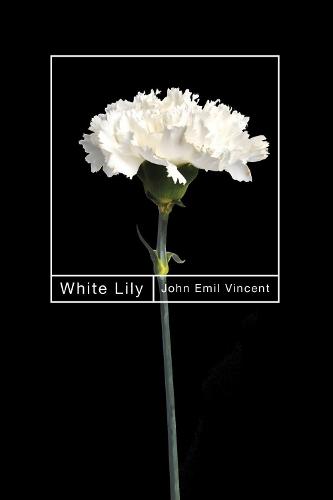Overview
Why are my problems / always the worst? // And why / because I wrote that / do you think I don’t believe it? White Lily is John Emil Vincent’s love note to Louise Glück and Laurie Anderson, two artists inspired and bedevilled by white lilies. Under their spell the poet dives into parable, fable, received wisdom, compact discs, and ruined utopias like a gleeful truant child. The white lily is ever present - its meanings, messages, and seductive scent. The collection begins with a meditation on Anderson’s song “White Lily” and its treatment of Rainer Werner Fassbinder’s fourteen-hour film Berlin Alexanderplatz. It goes on to ponder whether, if we take them in earnest, our mistakes come to serve as the surest sign of seriousness. Throughout, Vincent’s poems trouble what’s exact and exacting, always with the white lily as companion, a promise of rebirth delivered in funeral tones.
Full Product Details
Author: John Emil Vincent
Publisher: McGill-Queen's University Press
Imprint: McGill-Queen's University Press
ISBN: 9780228023777
ISBN 10: 0228023777
Pages: 104
Publication Date: 15 April 2025
Audience:
General/trade
,
General
Format: Paperback
Publisher's Status: Active
Availability: In Print

This item will be ordered in for you from one of our suppliers. Upon receipt, we will promptly dispatch it out to you. For in store availability, please contact us.
Reviews
“White Lily is like nothing else I know in contemporary poetry. It ranges without effort from quietly chilling parables to laugh-out-loud invective, from fleet-footed meta-poetic games to sudden, crushing depths, from serial elegy to one poem that’s a single emoji. The titles alone are a poetic pleasure. Readers of Vincent’s previous work will recognize his unmatchable wit, his genius for making huge leaps in small increments, his ability to re-see well-worn metaphoric terrain completely afresh, like it’s no big deal – but even given that, I think this is his best book yet.” Chris Nealon, author of The Shore “John Emil Vincent is a man with three first names: one each for erudition, pique, and hilarity. In these pages – which proceed from homage, from love – you will find many versions of his ardent regard for his friend and teacher Louise Glück. Sometimes he conveys that regard in the form of direct expression (poems about her), sometimes in conversation with or imitation (or mock imitation) of her poems; always he twines together scorching reverence and the internal tussle between breaking away from and accepting, appreciating, a lineage that is both circumstantial and spiritual, intellectual, devotional. Like Glück, Vincent knows the ancients. His Sisyphus’s hands never get free, though: up up up he pushes that rock. Meanwhile, we consider Syphilis (an actual shepherd) and Vicarius (a made-up Roman poet), denizens of White Lily’s irreverent panache. To fully mourn – or, rather, cherish – one must not apotheosize but conjure and reinhabit the congenial, kindred climate of mind. And as Vincent might say, This turns out is fun.” Sally Ball, author of Hold Sway
“White Lily is like nothing else I know in contemporary poetry. It ranges without effort from quietly chilling parables to laugh-out-loud invective, from fleet-footed meta-poetic games to sudden, crushing depths, from serial elegy to one poem that’s a single emoji. The titles alone are a poetic pleasure. Readers of Vincent’s previous work will recognize his unmatchable wit, his genius for making huge leaps in small increments, his ability to re-see well-worn metaphoric terrain completely afresh, like it’s no big deal – but even given that, I think this is his best book yet.” Chris Nealon, author of The Shore “John Emil Vincent is a man with three first names: one each for erudition, pique, and hilarity. In these pages – which proceed from homage, from love – you will find many versions of his ardent regard for his friend and teacher Louise Glück. Sometimes he conveys that regard in the form of direct expression (poems about her), sometimes in conversation with or imitation (or mock imitation) of her poems; always he twines together scorching reverence and the internal tussle between breaking away from and accepting, appreciating, a lineage that is both circumstantial and spiritual, intellectual, devotional. Like Glück, Vincent knows the ancients. His Sisyphus’s hands never get free, though: up up up he pushes that rock. Meanwhile, we consider Syphilis (an actual shepherd) and Vicarius (a made-up Roman poet), denizens of White Lily’s irreverent panache. To fully mourn – or, rather, cherish – one must not apotheosize but conjure and reinhabit the congenial, kindred climate of mind. And as Vincent might say, This turns out is fun.” Sally Ball, author of Hold Sway ""White Lily's ironic, minimalistic stanzas sear like incisions across the page. [The book] explores difficult mental states with a frankness that makes Vincent's voice distinct. The poet's strongest collection yet, these poems ask how to make peace with a self one can neither entirely disclose nor entirely escape."" Montreal Review of Books
Author Information
John Emil Vincent is the author of several books including The Decline and Fall of the Chatty Empire, Bitter in the Belly, and Ganymede’s Dog. He lives in Montreal.




